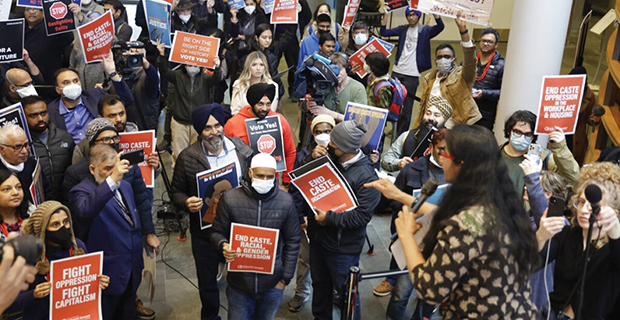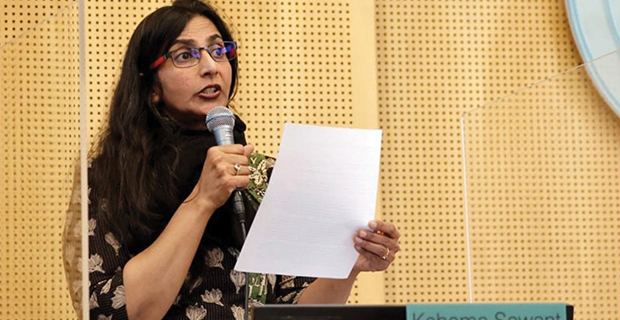“CASTE BIAS EXISTS IN US, HAS TO BE COUNTERED”
Kshama Sawant made history in the month of February 2023 when Seattle adopted a resolution moved by her to ban caste-based discrimination, becoming the first US city to do so. She took and stared down critics like the Hindu American Foundation, a powerful advocacy group, and many Hindu Indian Americans who argued the ban discredits and singles out Hindus.

Critics of the ban also argue that Seattle already banned all sorts of discrimination, including on the basis of ancestry, which would include your country, religion, background. Why add caste to it, specifically?
They’re grasping at straws to oppose something that is clearly -- was clearly -- needed. And, in fact, you can see from the response that we’ve gotten globally, just this overwhelming support shows that this is actually needed. Even from a legal point of view, the reason this kind of case was filed in California was because the state does not have a specific discrimination (law) against caste (refers to a case filed by a tech company employee).
And if you look at the pre-existing discrimination law in the city, you know, before we won this ordinance, for example, it bans discrimination on the basis of gender, and also bans discrimination on the basis of sexual orientation. At that time when people were advocating for having sexual orientation also, in addition to gender, the right wing at that time said ‘Well, why do you need to do that, it’s already protected by the ban on discrimination based on gender’. But that’s not true.
I mean, they’re separate things. In fact, the law is stronger when it recognises and stops a very specific form of discrimination. And the reason you need to put in caste is because this type of discrimination is very real, and it is becoming more widespread as the concentration of South Asian immigrant workers increases.
The last point that critics have brought up is that caste-based discrimination is not so rampant in the US and, in fact, it’s very rare. So why bother? And that some of the data cited in support for the need for a caste ban is suspect, especially those coming from Equality Labs (a Dalit civil rights organisation in the US).
All the data that we have, which is a lot, completely defies this talking point from the Hindu American Foundation. Yes, we have the Equality Labs study. We’re very clear that none of these studies has perfect methodologies but they do reveal something very important about what’s happening in relation to caste discrimination. And it’s not just a study by Equality Labs.
There’s also another study which used a different methodology, but reached the same conclusion: that there is a serious issue of caste oppression and that it is pervasive in the United States where we have South Asian community members. That study was by the Carnegie Endowment for International Peace.
The Carnegie study also acknowledged limitations of their own methodology. What they said, and this is a very important point, given how much fear oppressed caste people feel in even coming out as Dalits or oppressed caste, if anything, there’s under-reporting. In addition to the statistical studies, we’ve also seen hundreds upon hundreds of Dalits and other oppressed caste workers speak up about the kinds of discrimination that they face in the workplace. It ranges from being denied raises and promotions to being treated unfairly in reviews, peer reviews and appraisals, and also include day-to-day harassment, day-to-day indignity of being the target of so-called jokes on the basis of caste.
So just to be clear, this discrimination based on caste is by Indians on other Indians?
I wouldn’t say only Indians because other people from South Asia also face discrimination. For example, the ban on caste discrimination that was achieved by the movement in California State University was spearheaded among others by a Dalit activist from Nepal. This type of discrimination which, as I said, is very specific, is faced by oppressed castes - South Asian immigrant workers - from dominant caste South Asian bosses.











Comments.